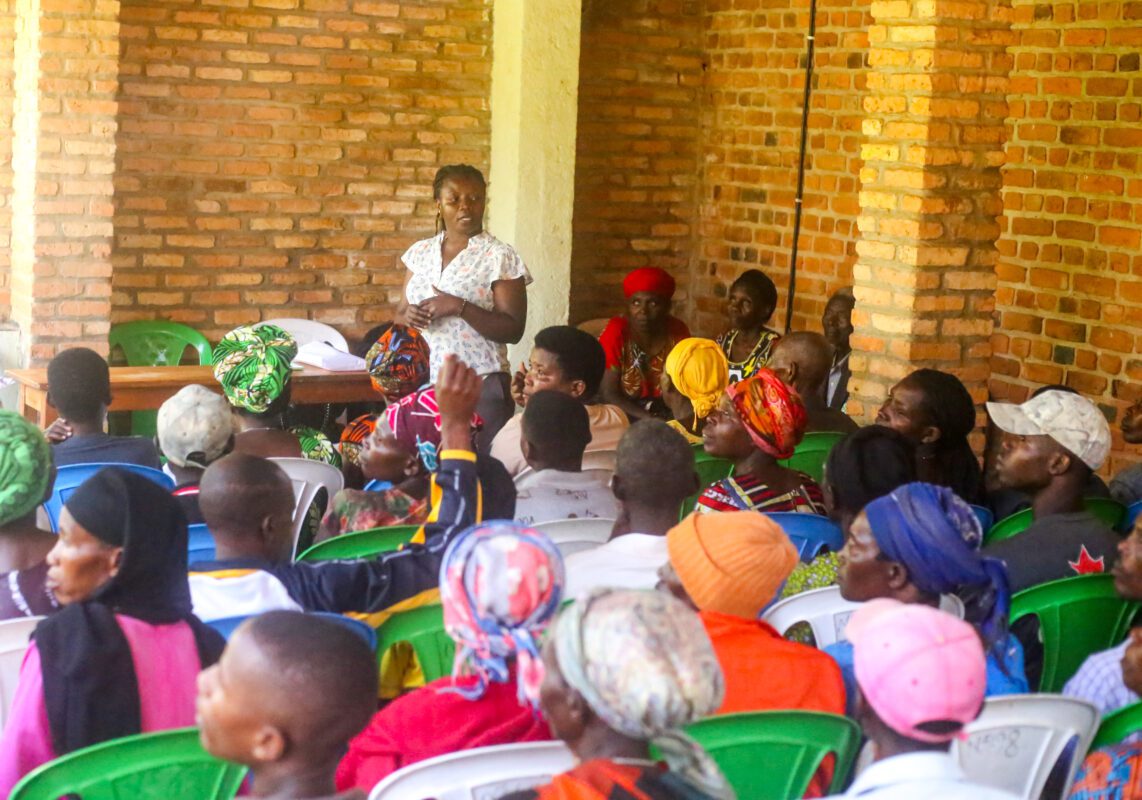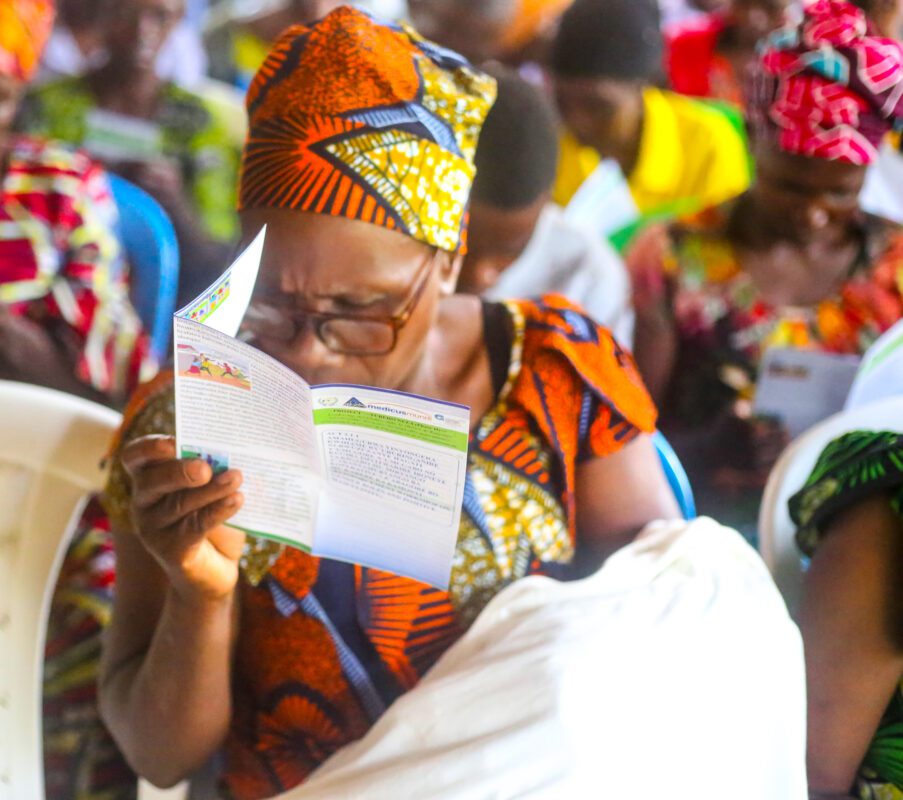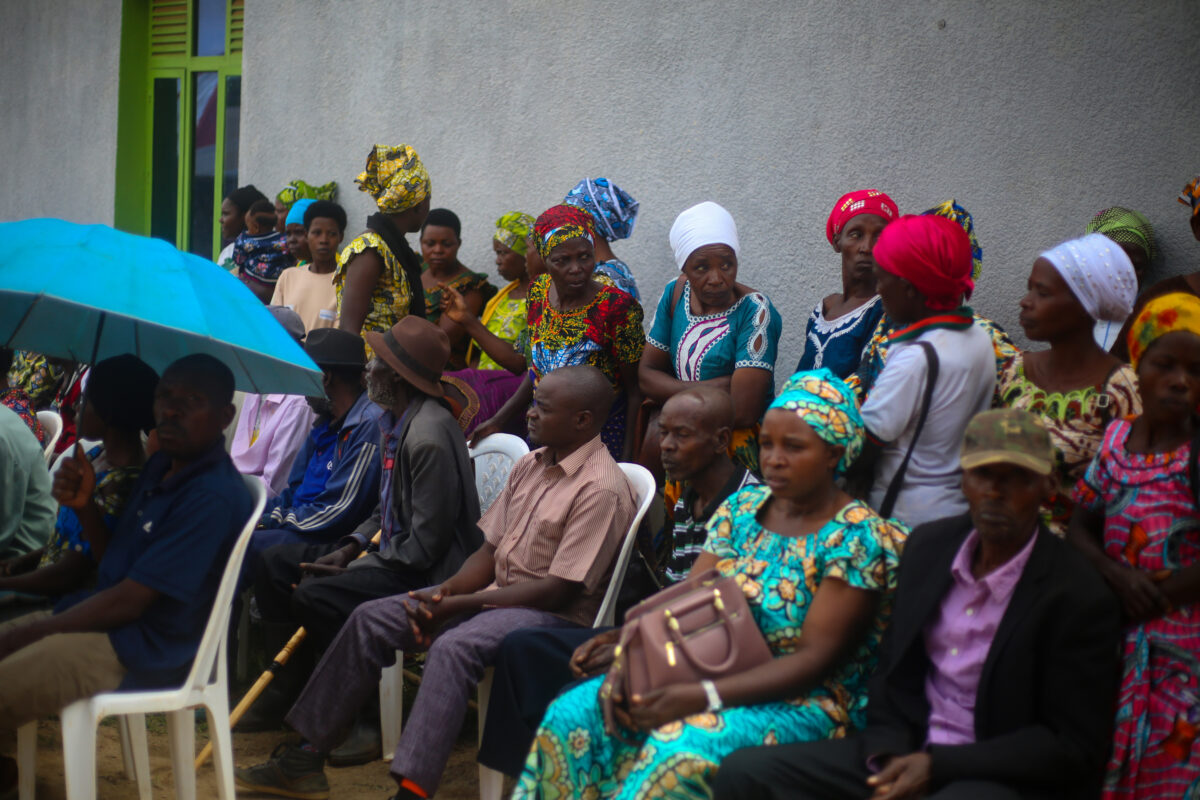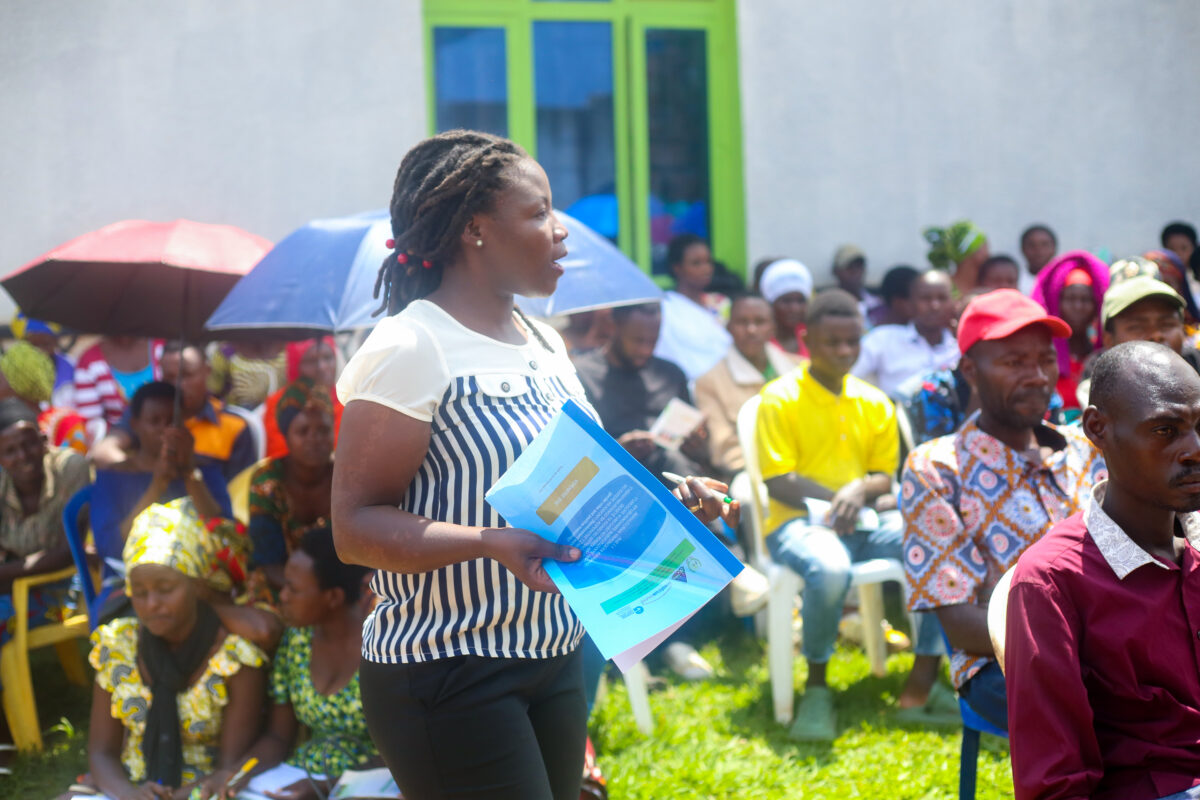In an effort to foster gender equality and complementarity between men and women, a transformative workshop was held for members of seven women’s cooperatives in Kamonyi District. This initiative is part of the Tubeho Neza Phase IIproject, implemented by ARDE/KUBAHO in partnership with Medicus Mundi, aiming to empower families and create equitable communities.
Building Understanding Through Training
The workshop focused on enhancing participants’ knowledge of gender equality and equity. By exploring critical concepts such as gender roles, mainstreaming gender in policies, and understanding the distinctions between biological sex and socially constructed gender roles, attendees gained a comprehensive understanding of the subject. The training emphasized the importance of addressing disparities between men and women to foster inclusive development.

Belancille Nyandwi, ARDE/KUBAHO staff leading the training at ABATICUMUGAMBI-GIHARA cooperative
Interactive Learning and Dialogue
To ensure an engaging and impactful experience, participants were given a variety of exercises to deepen their understanding of gender equity and equality. These hands-on activities allowed them to actively explore and discuss real-life scenarios where gender dynamics play a significant role. Moreover, an open Q&A session provided attendees with the opportunity to clarify concepts and address areas of uncertainty, ensuring a robust understanding of the workshop’s themes.
Why Gender Equality Matters
The workshop aimed to:
-
Enhance knowledge of gender equality among stakeholders involved in the Tubeho Neza Phase II project, ensuring its application in households, workplaces, policy-making, and community development.
-
Highlight the impact of gender disparities on development and encourage strategies to address these challenges.
-
Promote fair and inclusive practices that eliminate inequality in projects and programs, accelerating sustainable and equitable development.

Hands on exercises helped participants to dive deeper into Gender related matters.
Key discussions covered the differences between gender equality (achieving equal rights and opportunities) and gender equity (establishing fairness to address historical imbalances), along with strategies to empower individuals to take control of their lives and contribute to development.
Driving Positive Change
The workshop’s focus on promoting positive masculinity encouraged men to reflect on their roles and responsibilities within families and communities. By challenging traditional stereotypes and fostering complementarity between genders, the initiative aimed to build harmonious and equitable households.



